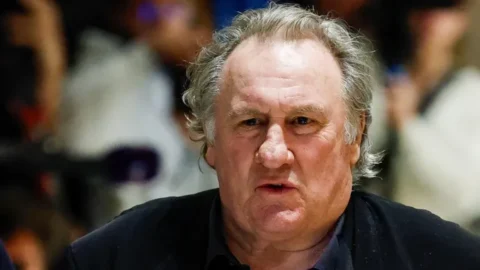Nigerian rapper Speed Darlington has filed a lawsuit against the Inspector General of Police (IGP), Kayode Egbetokun, over his alleged unlawful detention.
The embattled artist’s legal troubles began after his arrest and detention by the police, reportedly linked to comments he made about fellow musician Burna Boy. Darlington was accused of defamation and cyberstalking, charges that sparked widespread debate among fans and industry observers.
His arrest drew attention not only for its high-profile nature but also for the legal implications surrounding freedom of expression and the role of social media in modern disputes.
Darlington’s legal ordeal escalated after he was granted bail by the Federal High Court in Abuja on December 23, 2024. Despite the court’s decision, he remained in police custody, a move his legal team described as a blatant violation of his rights.
The rapper’s prolonged detention fueled speculation about undue influence, with many questioning the motives behind the police’s refusal to release him. This situation was further complicated when Darlington’s lawyer accused Burna Boy of leveraging his influence to keep the rapper behind bars.
In a video shared on social media, Darlington’s lawyer, Abubakar Marshal, alleged that Burna Boy had paid the police to ensure his continued detention. The video quickly went viral, amplifying public interest in the case and raising concerns about the misuse of power in Nigeria’s justice system.
Many fans and human rights activists expressed their outrage online, calling for Darlington’s immediate release and a thorough investigation into the allegations of police misconduct. The controversy highlighted the intersection of celebrity influence, legal accountability, and the right to due process.
On January 6, 2025, the Federal High Court in Abuja finally ordered the police to release Speed Darlington. The court’s directive brought a measure of relief to the rapper and his supporters, but the saga was far from over.
Just hours after his release, Darlington filed a N300 million lawsuit against the IGP, accusing the police of violating his fundamental rights. The lawsuit underscored his determination to seek justice and hold the authorities accountable for what he described as unlawful and oppressive actions.
The legal battle took a new turn as the Federal High Court scheduled a hearing for January 13, 2025, to address Darlington’s fundamental rights enforcement suit. His lawyer, Abubakar Marshal, requested an adjournment to give the police lawyer, Garba Audu, sufficient time to review and respond to the case.
This procedural step marked the beginning of what promises to be a closely watched legal showdown, with implications for both Darlington’s career and the broader discourse on police accountability in Nigeria.
Darlington’s case has sparked widespread discussion about the state of Nigeria’s justice system, particularly the challenges faced by individuals in asserting their rights against powerful institutions.
For many, the rapper’s ordeal serves as a reminder of the importance of legal reforms to protect citizens from abuse of power. As the January 13 hearing approaches, the eyes of the public remain fixed on the court proceedings, hoping for a resolution that upholds justice and reinforces the rule of law.







